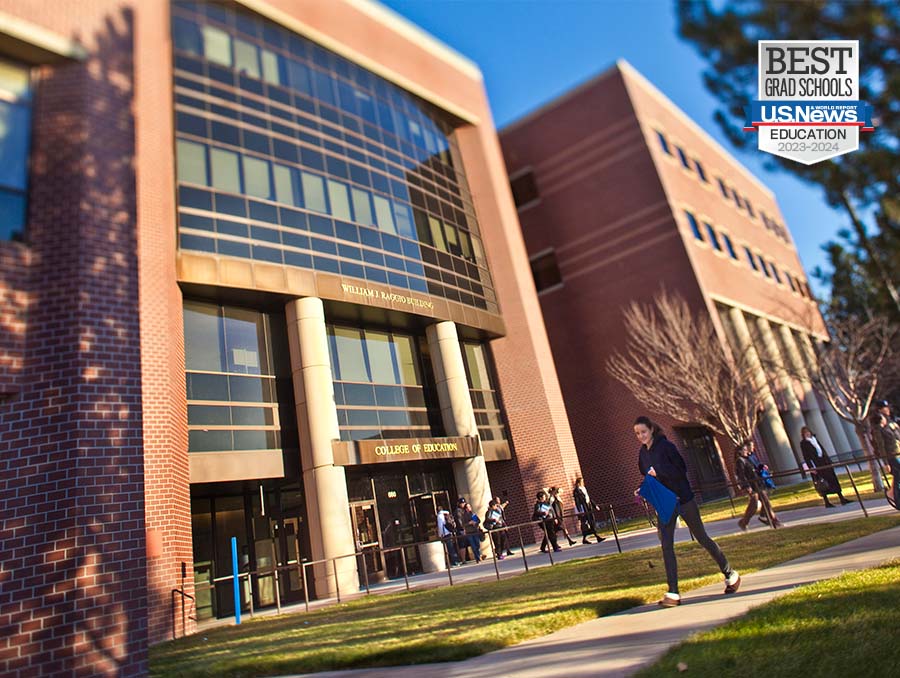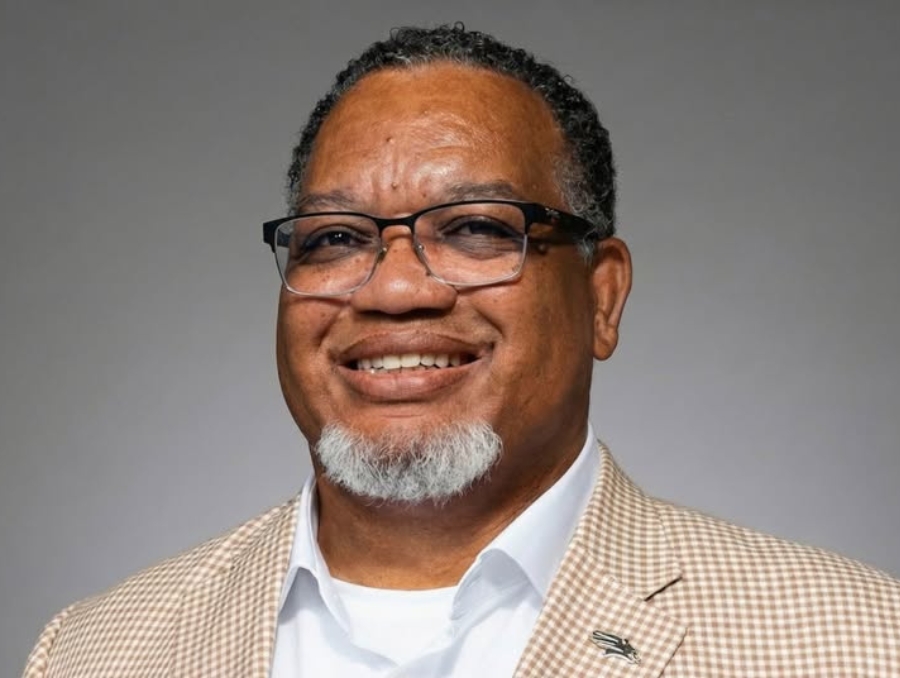The College of Education and Human Development expands by offering two new academic programs for undergraduate and graduate students. Academic programs include a Bachelor of Science in Early Childhood Education and an online Master of Science in Instructional Technology and Learning Design. Also, last year, the College added an online Reading Specialist Endorsement Certificate.
"We are excited about these new programs as they fit a workforce gap in our communities across the state," said Donald Easton-Brooks, Ph.D., Dean of the College of Education and Human Development. "Our Human Development and Family Studies program is committed to being a leader in graduating quality early childhood professionals to meet the high demand for ECE workers statewide. Additionally, our new master’s degree in Instructional Technology & Learning Design allows people in different industries to gain a degree and knowledge in instructional technology and learning."
Bachelor of Science in Early Childhood Education
The Early Childhood Education (ECE) undergraduate degree program is administered by the Department of Human Development, Family Science and Counseling and leads to a Bachelor of Science degree. Graduates are eligible to apply for a Nevada Department of Education Early Childhood Teaching License (birth‐2nd grade).
The Early Childhood Education (ECE) program is committed to preparing teachers to provide a developmentally, culturally and linguistically appropriate education for young children, birth to age 8. ECE students will gain an appreciation for and a rich understanding of child development and the importance of working reciprocally with families in programs for young children. ECE program faculty are firmly dedicated to the belief in every child's potential and in preparing teachers to recognize and promote this potential.
The program is designed to develop in students the professional standards and competencies described in the National Association for the Education of Young Children (2019) position statement, Professional Standards and Competencies for Early Childhood Educators. Through intentional, hands-on learning experiences in program coursework, students will build their capacity as effective early childhood educators.
“We are so excited to launch this new degree program in Early Childhood Education,” said Melissa Burnham, Ph.D., Chair of the Department of Human Development, Family Science and Counseling; and executive coordinator of the Child and Family Research Center. “The ECE program has been carefully designed through the hard work of a core group of faculty and community partners over the past few years. We’re especially proud of the new program’s focus on diversity, equity, inclusion, and justice and believe our graduates will be well prepared to provide the strongest foundation possible to the youngest children of Nevada.”
The College is also currently developing a doctorate program in Human Development and Family Science (HDFS) which will prepare researchers with a foundational understanding of developmental and family science and promotes best practices in these domains through both empirical research as well as advocacy and public policy.
Online Master of Science in Instructional Technology & Learning Design
The Online Master of Science degree in Instructional Technology & Learning Design (ITLD) provides graduate-level training for educators and prospective educators. Graduates have a variety of opportunities for employment as an instructional designer, curriculum designer, leading technology officer or assessment officer.
The program focuses on the knowledge and skills of instructional design and using technology tools to improve teaching and learning, especially on the design of online learning and digital applications in education. The curriculum meets the ISTE National Technology Standards for Teachers. While a portion of the course work focuses on skill development, emphasis is also on examining theoretical and conceptual frameworks relating to instructional technology and learning design. Potential applicants are expected to have a relevant background in education with an interest in exploring the uses of instructional technology in classrooms or any educational and training settings.
"With the explosion of technological advances, this program prepares students to actively learn and integrate cutting-edge technology tools and instructional design methods into the 21st century's educational and professional learning context," Leping Liu, Ph.D., professor of information technology & statistics, said. "Students will dive deeper into the latest instructional technological tools using artificial intelligence and augmented reality, as well as explore gamification context for classrooms. They will also learn to develop and lead instructional design projects such as designing online courses, creating 360-degree visual applications, and building a professional website."
In addition, an Instructional Technology and Learning Design certificate will be offered in the near future.
Online Reading Specialist Endorsement Certificate
The Reading Specialist Certificate program is a fully online, asynchronous, 16-credit program designed to boost teachers’ professional knowledge about reading instruction. It is for practicing teachers who already have a Master’s degree or are in the process of earning one. This certificate supports the development of advanced knowledge in literacy development, curriculum, instruction and assessment. Students engage in coursework and practicum experiences to determine and meet the literacy needs of all students. The requirements for the program are aligned with the Nevada State Reading Specialist Endorsement requirements.
Dianna Townsend, Ph.D., graduate program director for the M.Ed., Certificate, and Ph.D. programs in Literacy, shares, “Our literacy faculty love working with teachers to explore research-based practices in literacy instruction and assessment. We encourage all interested teachers to reach out to us to learn more!”
The College of Education and Human Development is a recognized leader in guiding, shaping, and mentoring high-performing education professionals who will go forth with a lifelong love of learning and with the skills essential for thriving in a global, knowledge-based economy. The U.S. News and World Report ranks the College of Education and Human Development's graduate programs 83rd in the nation and 25th among Land Grant universities. The online graduate programs are ranked 9th in the West among all public universities.
The College's list of academic programs is continually growing, offering students more opportunities to discover their career goals. Learn more about the degrees offered in the College of Education and Human Development.
















